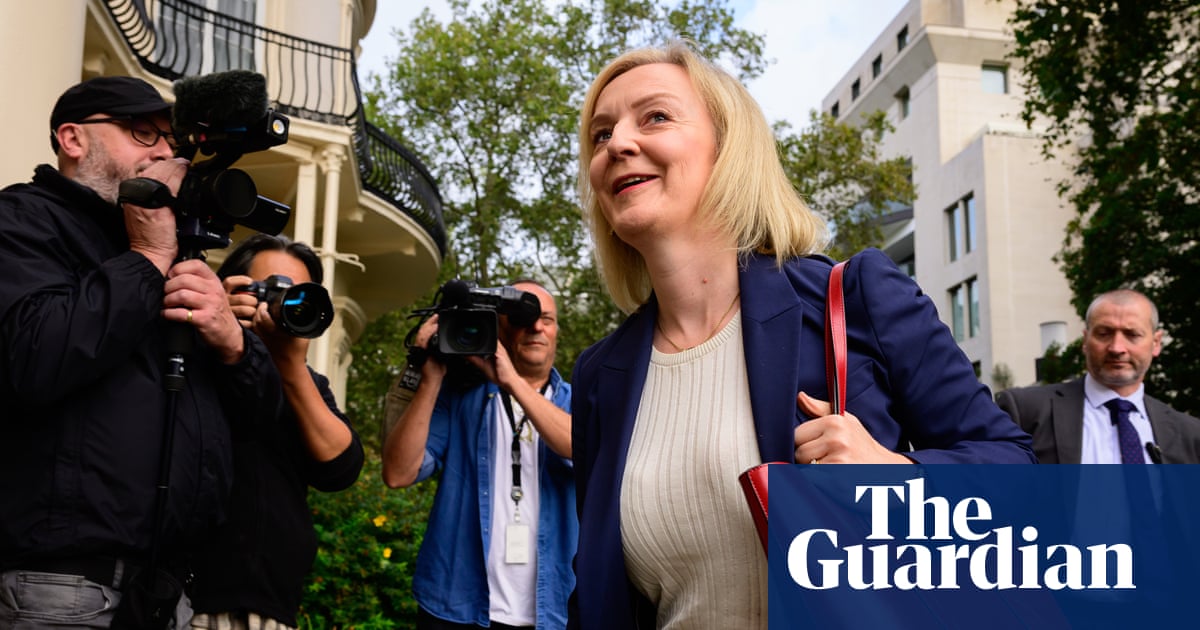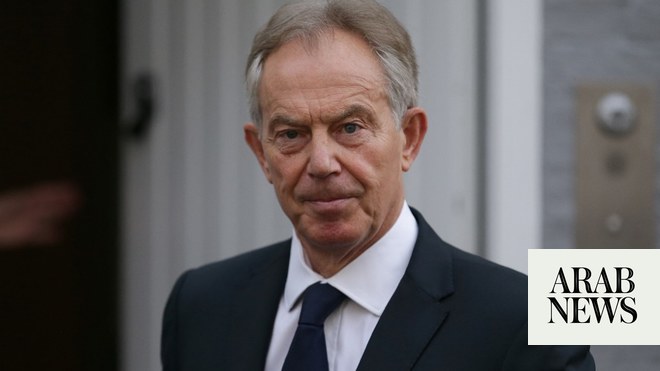
Liz Truss has said the Conservatives would have done better in July’s general election if she had stayed on as prime minister, during an often freewheeling one-off appearance at the Tory conference.
Truss, who stepped down after 49 days in Downing Street, said that if she had had the support of her MPs and if the financial “establishment” had not undermined her 2022 mini-budget, she would have delivered lower taxes, more growth and low energy costs through fracking.
Truss, who declined to back any of the four Tory leadership candidates, saying she preferred Argentina’s far-right president, Javier Milei, also refused to rule out trying to return to parliament, saying: “I’m not going to give up on this fight.”
Asked during a fringe event Q&A if she thought a Tory party led by her rather than Rishi Sunak would have performed better in the general election, Truss replied: “Yes, I do.” She went on: “Because when I was in No 10, Reform was holding at 3% [in the polls]. By the time we got to the election, I think they got 18% because we promised change that we didn’t deliver.”
Truss also blamed the rise of Reform for Labour winning her South West Norfolk constituency, saying she “didn’t believe the people of South West Norfolk actually consciously want a Labour MP”.
She did, however, say it would have been “a very tall order” for her to have won the general election if she had stayed as PM, saying: “I think our best chance of winning would have been to have kept Boris.”
Since leaving office, Truss has increasingly blamed the Bank of England, the Office for Budget Responsibility (OBR) and other officials for causing the extremely negative market reaction to the mini-budget, which offered £45bn of unfunded tax cuts.
She said it was “complete economic illiteracy” to blame her. “When I got into government, taxes were ready at a 70-year high … the debt was going up,” she said. “I tried to turn that around, but the mini-budget was not implemented because organisations like the Bank of England sought to blame their mistakes on me, and the media, what you’d call the political class in Britain, went along with that narrative.”
Truss called for the OBR, the government’s fiscal watchdog, to be abolished. “Conservatives won’t succeed until we get rid of the Office for Budget Responsibility,” she said.
Claiming she had had a mandate to take on such institutions after Conservative members picked her over Sunak to replace Boris Johnson as prime minister, Truss said: “What I found was that those people and institutions were very powerful. They sought to undermine me, and at the same time people in the Conservative party wanted to buy into that narrative, but they are fundamentally wrong.”
Asked about the four candidates vying to succeed Sunak now as party leader, Truss said they needed to be more radical, for example by looking at scrapping or amending the Human Rights Act and the Equality Act. She said candidates also needed to combat “the wokery marching for our institutions, the human rights culture embedded in government”.
“So far, I haven’t seen any of the candidates really acknowledge how bad things are in the country as a whole, and frankly, for the Conservative party,” she said.
Truss added: “I am a huge fan of Javier Milei. If Milei was standing in the Conservative leadership election, I would be backing him like a shot. On everything, he’s doing the right thing.”
For the most part, the candidates have avoided much direct criticism of Truss. But on Monday, Robert Jenrick told ITV’s Peston show that her mini-budget “did great harm to our reputation for sound management of the public finances – it was cack-handed, it was careless and it was unconservative.”
Asked why Truss still seemed popular with some party members, he replied: “She’s not a member of parliament any more and I think we have to move on from that.”












